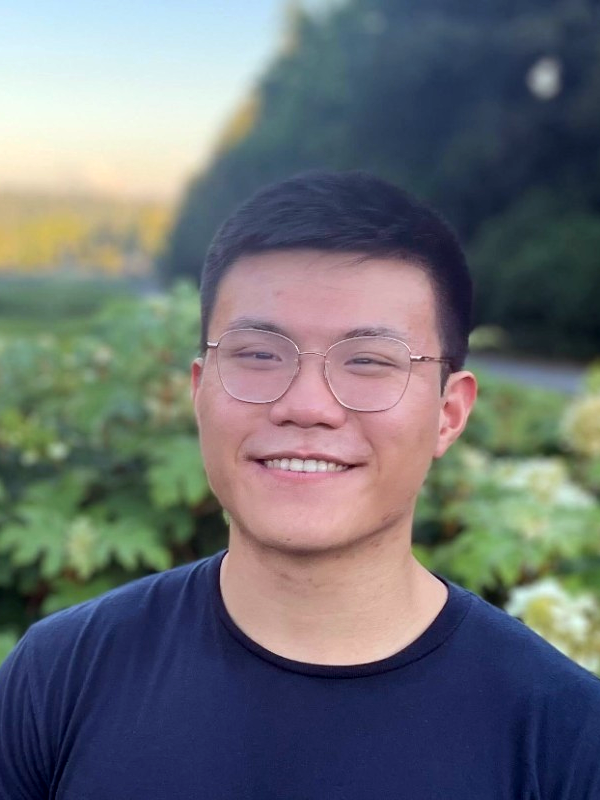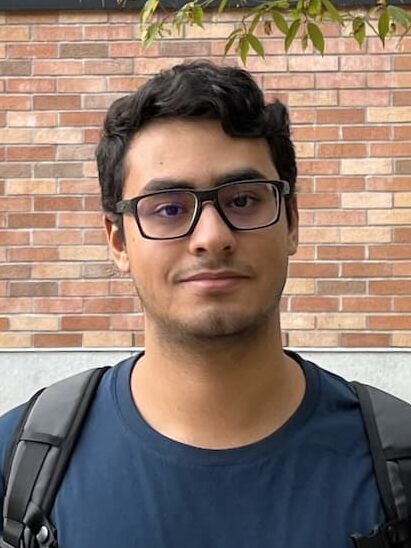The Computing Research Association recently honored Allen School undergraduates Michael Duan and Anas Awadalla as part of its Outstanding Undergraduate Researcher Awards program for 2023. The annual program highlights exceptional undergraduate students from across North America for their contributions to the computing field.
Duan, who works with professor and advisor Jon Froehlich in the Makeability Lab, was selected as a finalist for his work on Scaling Crowd+AI Sidewalk Accessibility Assessments and Sidewalk Gallery: An Interactive, Filterable Image Gallery of Over 500,000 Sidewalk Accessibility Problems. The senior computer science major is the first undergraduate student in the lab’s history to receive such an honor.
“It’s really cool that I got a chance to be considered among other innovative and hardworking undergraduates,” Duan said. “Their work is extremely inspiring to me, so I’m glad I got an opportunity to share my work alongside them.”
Duan was first author on both projects. The first focused on automated sidewalk accessibility assessment with crowdsourced data. Together, Duan and his co-authors investigated using computer vision methods to determine and label the presence of accessibility features such as curb ramps in urban scenery — findings, he said, that can assist urban planners, disability advocates and city governments in designing smarter, more inclusive infrastructure.
The second project explored data visualization related to disability advocacy and urban planning. With the sheer amount of ever-increasing datasets, better ways of visualizing that data are needed. To tackle this problem, Duan and his collaborators introduced Sidewalk Gallery, an interactive, filterable gallery of more than 500,000 crowdsourced sidewalk accessibility images across seven cities in two countries. The innovative interface allows users to browse and cull these images for different accessibility problem types, severity levels and more, providing a visualization aid and a teaching tool for urban design.
“Most datasets are geared primarily towards computer vision,” Duan said. “For both researchers and the general public, visualization tools are critical to exposing and understanding data, broadening reach and lowering barriers to use.”
Awadalla, who is advised by professor Ludwig Schmidt, was selected as an honorable mention for his work in natural language processing and in building reliable machine learning systems. In the former, he and his collaborators studied the distributional robustness of question-answering (QA) models. With the latter, Awadalla was part of the team from the Ubiquitous Computing Lab, led by professor Shwetak Patel, that built a framework for improving the trustworthiness of mobile health neural networks.
“I am happy to get this distinction and to have my research recognized,” said Awadalla, a senior computer science major. “Research has been the most fulfilling experience during my time at UW.”
In his most recent research project, Awadalla and his co-authors investigated how NLP practitioners can use specific training methods to improve the robustness of their QA systems. Though research in the domain has increased, the community lacks a shared framework from which to evaluate robustness. Citing this challenge, Awadalla and his collaborators conducted a large empirical study to better understand and assess methods that generalize with more reliability.
Awadalla also collaborated on a project improving the reliability of AI-powered diagnostic and health screening tools. With unseen data, machine learning models can behave unpredictably, raising safety concerns in a field where errors can prove fatal. The research team demonstrated this flaw by using publicly available deep learning models and datasets. Then they created an interpretable confidence score for users, Awadalla said, to assess the compatibility of their dataset with a trained model. Their findings were integral in building consumer-friendly and trustworthy AI applications that can help patients and healthcare providers make more-informed decisions.
Raul Villanueva, an undergraduate in the UW Department of Electrical & Computer Engineering, was also recognized by CRA as a finalist.
Congratulations to Michael, Anas and Raul!



